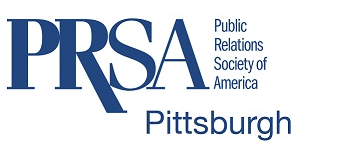From the armed forces to the civilian workforce: Tips to attract, hire and retain veterans
By Taylor Fife
Diversity & Inclusion Co-Chair and Social Media Co-Chair
Did you know veterans face a higher unemployment rate than civilians, especially in Pennsylvania? Just last year the state had the second highest unemployment rate of veterans in the country.
For PHV, our 2020 public service nonprofit partner, this data is simply unacceptable.
PRSA Pittsburgh’s Diversity & Inclusion Committee invited PHV to appear in a special Screen to Screen episode on Facebook Live, “Why You Should Be Hiring Veterans.” The event aimed to highlight inclusive hiring practices for veterans and the unique qualities they bring to the workforce.
Kristen Wishon, PRSA Pittsburgh’s public service chair, interviewed PHV Executive Director Dayna Brown; Employment Specialist Brian Harkins, a Marine Corps veteran; and George Scott, a former PHV employee and Marine Corps veteran, who shared his gratitude for PHV’s support as he worked to rejoin the workforce in Southwestern Pennsylvania.
Problems veterans face when rejoining the workforce
A lack of understanding of the veteran experience, miseducation and the stigma of mental health are some of the biggest issues veterans face when rejoining the workforce.
“Veterans struggle to be understood by the majority of the population,” Brown said. Less than 8% of the U.S. population has served or is serving in the military. “It’s a small population, but a very important one. That means the other 92% of our population have never served in the military and can’t directly relate to the veteran experience.”
More conversations between local veteran organizations and the top levels of the military could combat this misunderstanding. Open and direct lines of communication will help build a better pipeline to understanding veterans and implementing equitable hiring practices.
“Civilians are a very important part of our transition back into society and the barrier between us and them needs to be broken,” Scott said.
Employers and hiring managers need to educate themselves on the issues veterans face when rejoining the workforce. This includes eradicating implicit biases and moving past the mental health stigma surrounding veterans.
Many people associate post-traumatic stress disorder and other mental illnesses with military combat and war veterans, but one out of every five civilians, or about 20% of the U.S. population, is enduring a mental health issue, according to the National Institute of Mental Health. Only about 8% of military veterans experience mental illness, reports the Department of Defense.
“That’s significantly lower than the civilian population, but yet the perception is that mental health illnesses are a lot higher in the military,” Harkins said.
Civilians, employers and hiring managers should seek understanding rather than trying to be understood. They must recognize that everyone has traumas, not just veterans.
Unique qualities veterans bring to the workforce
Returning to civilian life, veterans possess countless skills to benefit an employer, including:
- Discipline
- Leadership
- Time management
- The ability to work unsupervised and hold themselves accountable
- Critical thinking skills, especially under pressure or tight deadlines
“They’re incredibly committed, flexible, resourceful and resilient,” said Brown, who is also the spouse of a Marine. “Many veterans have often led teams and were responsible for the general welfare and wellbeing of the people who they were leading, even after the mission was completed. Just imagine how valuable they would be to a team.”
How employers can implement inclusive hiring practices
Five days’ worth of transition assistance is given to service members who are leaving the military, intended to help acclimate to civilian life.
“Unfortunately, it’s just five days, so then it ultimately becomes up to the veteran to pick up the pieces and fill in the gaps where they don’t understand,” Brown said.
Employers should instead aid veterans in their transition, taking advantage of local veteran centers.
“Ease the stress and trauma of unemployment for them,” Brown said. “Remember, they’ve been working hard in the military to protect our country and they’re coming back to the unknown. Just come alongside a veteran and guide them.”
Employers also need to become more innovative in their hiring practices, especially since the COVID-19 pandemic has highlighted the existing digital divide even more.
“When I was going through the interview process for the Red Cross, I explained to them that Zoom didn’t work for me,” Scott said. “I explained my situation and they were willing to talk to me over the phone and even through texting.”
Scott was grateful his future employer was aware of his unique situation and needs, but knows not all veterans receive the same treatment.
“We all have to work together to be stronger together,” added Scott
Employers need to realize most people have legitimate reasons for gaps in their resumes. Brown urges employers to become more aware of the unique challenges a veteran may have endured, or are still enduring.
“Have another veteran look at a veteran’s resume, or have a veteran sit in on an interview, so they can aid the hiring manager and assign a mentor to help transition the veteran into the culture of your company,” suggested Brown.
In order to create a supportive environment fostering veteran success, PHV encourages companies and organizations to join its employer partner network.
“I wouldn’t have made it without PHV,” Scott said. “I couldn’t find employment but PHV hired me. They are breaking down the barriers to employment.”
Veteran employment, training & educational resources
PHV recommends the following resources to veterans, employers, hiring managers and any individuals who want to aid in improving veteran hiring outcomes in our region.
Regional Resources
National Resources
Certifications
PRSA also offers free, national membership to qualified public affairs professionals transitioning from the military to the civilian workforce.
Please email us at info@prsa-pgh.org or contact us via social media or here on our website if you would like a veteran service organization added to this list.





Leave a Reply
Want to join the discussion?Feel free to contribute!